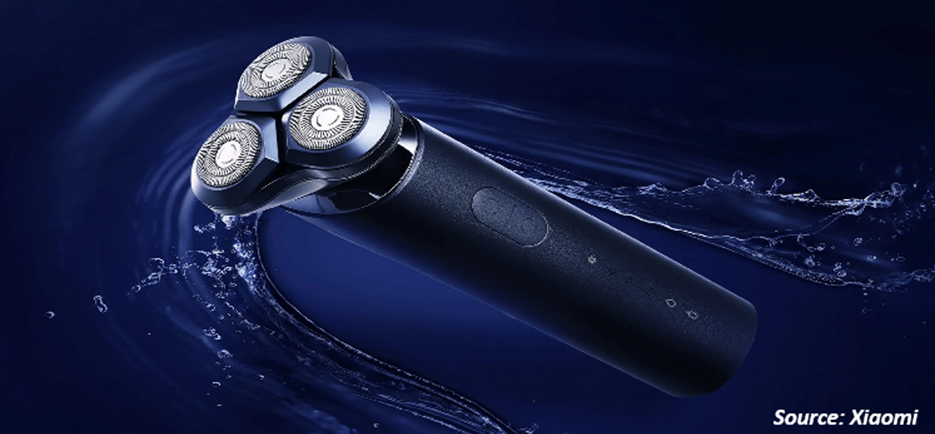
Smart Headphones Market by Product Type (In Ear, On Ear, and Over Ear), by Application (Sports Headphones, Gaming Headphones, Business Headphones, Professional Headphones and Ordinary Headphones), and by Distribution Channel (Online and Offline) - Global Opportunity Analysis and Industry Forecast, 2024 – 2030
Market Definition:
Global Smart Headphone Market size was valued at USD 12.13 billion in 2023 and is predicted to reach USD 40.43 billion by 2030 with a CAGR of 18.8% from 2024-2030.
Smart headphones work on the principle of transmitting signals through wireless technologies such as Bluetooth and Wi-Fi. Also, these devices provide features such as background noise cancelation and touch-based control that enables users to shuffle songs with a simple touch. In addition, it performs various functions such as fitness & heart rate tracking, voice-based personal controls, and contextual location-based suggestions.
Market Dynamics and Trends
Demand for smart headphones is rising due to technological advancement and introduction of features such as virtual assistants, language translation, and touch gestures. For instance, in July 2021, Sony had developed a headphone having lDAC technology that significantly enhances the hearing experience. Also, advancements in technologies such as water-resistance, better tensile strength, and good battery backup are attracting customers and thereby increasing the market growth during the forecast period.
However, hearing ailments, surging prices, and limited knowledge about the smart headphones are factors restraining the growth of the market to certain extent. On the other hand, rise of bring-your-own-gadgets (BYOD) trend, along with advancements in Bluetooth, and close to handle correspondence (NFC) technologies are expected to create ample growth opportunities for the market in the coming years.
Market Segmentations and Scope of the Study:
The smart headphone market is segmented on the basis of type, technology, application, distribution channel, and geography. On the basis of type, the market is divided into in-ear, on-ear, and over ear. On the basis of technology, the market is classified into wired and wireless. On the basis of application, the market is categorised into gaming, music, and health. On the basis of distribution channel, it is divided into online sales and offline sales. Geographic breakdown and analysis of each of the aforesaid segments includes regions comprising of North America, Europe, Asia-Pacific, and RoW.
Geographical Analysis
Asia-Pacific region holds the predominant share of global smart headphone market and is expected to continue dominating the market during the forecast period. This is attributed to factors such as increasing usage of wireless devices and growing application of 3D audio technology that enhances the music experience, further drives the market growth in this region. Also, China ranks first in terms of the demand for smart headphones, as people in this country are highly adaptable to the ongoing trend and are gadget friendly.
However, North American region is expected to grow extensively as compared to other regions in the global smart headphone industry, due to increasing use in the healthcare, education, corporate, and military expeditions. Also, advancements in technologies such as emergence of virtual assistants such as Alexa and Siri are also expected to contribute to higher sales in this region.
Competitive Landscape
The smart headphone market comprises of various market players such as Sony, Bose, Apple, JBL, Samsung, Skullcandy, Beats, Philips, Sennheiser and LG among others. These manufacturers are actively indulging in R&D initiatives, product & technology innovations, and industrial collaborations to enhance their product and increase their growth as well as geographical reach.
For instance, in January 2022, Sony has launched a budget-friendly true wireless earbuds. It comes with a battery backup of 20 hours with X-loud feature that offers its customers both reliability and portability. Furthermore, in December 2021, Sennheiser had unveiled its full HD wireless headphone with a noise cancellation technology, smart pause and triple microphone array. All these new product launches by the companies are expected to increase the sales globally.
KEY BENEFITS
-
The smart headphone report provides the quantitative analysis of the current market estimations through 2022-2030 that assists in identifying the prevailing market opportunities to capitalize on.
-
The study comprises a deep dive analysis of the smart headphone market including the current and future trends for depicting the prevalent investment pockets in the market.
-
The information related to key drivers, restraints and opportunities and their impact on the smart headphone is provided in the report.
-
The competitive analysis of the market players along with their market share in the smart headphone market.
-
The SWOT analysis and Porters Five Forces model is elaborated in the study.
-
Value chain analysis in the market study provides a clear picture of the stakeholders’ roles.
KEY MARKET SEGMENTS
By Type
-
In Ear
-
On Ear
-
Over Ear
By Technology
-
Wireless
-
Wired
By Application
-
Gaming
-
Sports
-
Business
-
Professional
-
Ordinary
By Distribution Channel
-
Online
-
Offline
By Geography
-
North America
-
U.S
-
Canada
-
Mexico
-
-
Europe
-
UK
-
Germany
-
France
-
Italy
-
Spain
-
Rest of Europe
-
-
Asia-Pacific
-
China
-
India
-
Japan
-
South Korea
-
Australia
-
Rest of Asia-Pacific
-
-
RoW
-
UAE
-
Saudi Arabia
-
South Africa
-
Brazil
-
Remaining Countries
-
KEY PLAYERS
- Sony
- Bose
- Apple
- JBL
- Samsung
- Skullcandy
- Beats
- Philips
- Sennheiser
- LG
REPORT SCOPE AND SEGMENTATION:
|
Parameters |
Details |
|
Analysis Period |
2023–2030 |
|
Base Year Considered |
2023 |
|
Forecast Period |
2024–2030 |
|
Market Size Estimation |
Billion (USD) |
|
Market Segmentation |
By Product Type (In Ear, On Ear, and Over Ear), by Application (Sports Headphones, Gaming Headphones, Business Headphones, Professional Headphones and Ordinary Headphones), and by Distribution Channel (Online and Offline) |
|
Geographical Segmentation |
North America (U.S., Canada, Mexico) Europe (UK, Germany, France, Italy, Spain, Rest of Europe), Asia-Pacific (China, India, Japan, South Korea, Australia, Rest of Asia-Pacific), Rest of the World (UAE, Saudi Arabia, South Africa, Brazil, Remaining Countries) |
|
Companies Profiled |
Sony, Bose, Apple, JBL, Samsung, Skullcandy, Beats, Philips, Sennheiser and LG |




 Speak to Our Analyst
Speak to Our Analyst


































